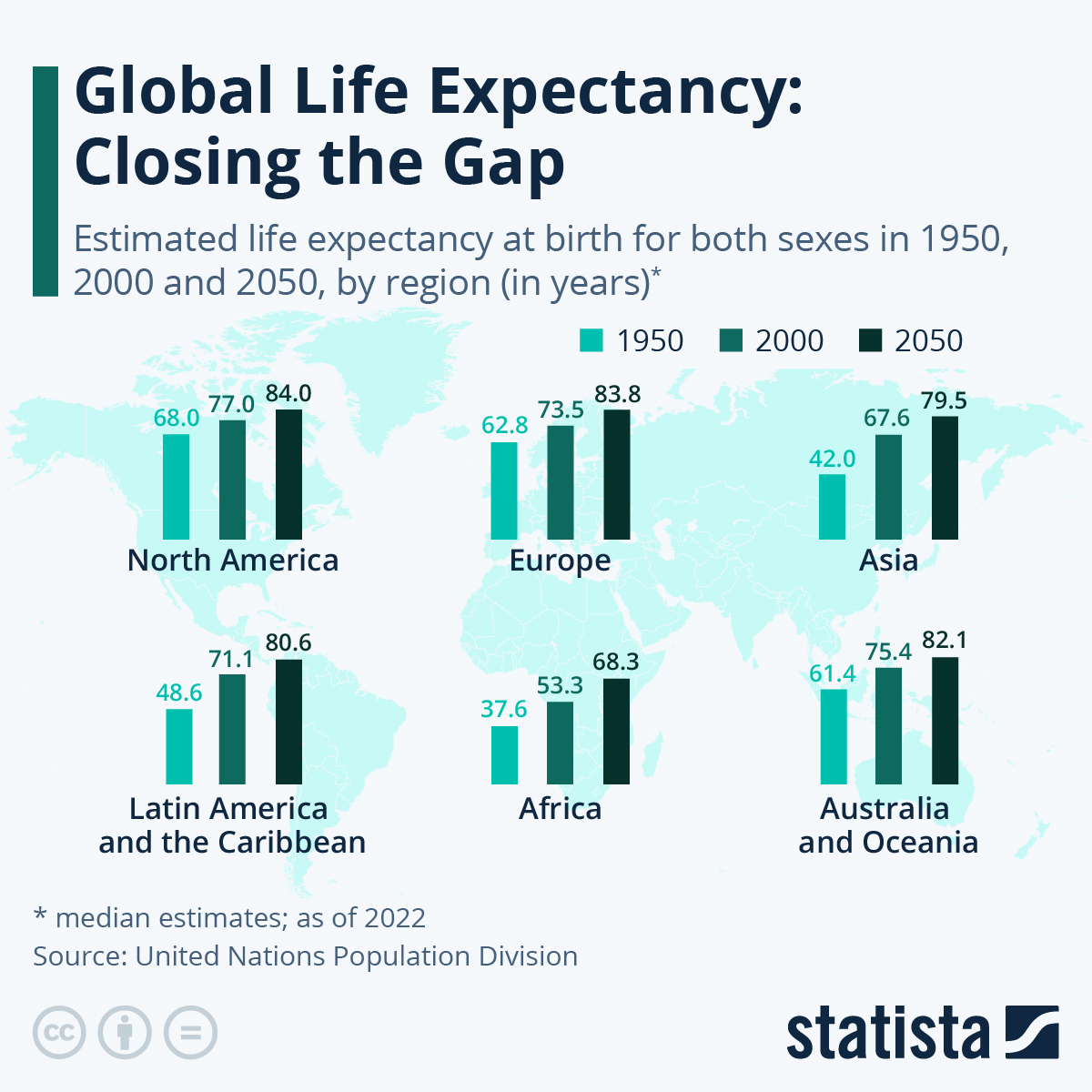Charted: How life expectancy is changing around the world

Global life expectancy for both sexes is expected to rise to 77.3 by 2050.
Image: Unsplash/ Alex Blăjan
Stay up to date:
Global Health
- Global life expectancy for both sexes has improved, according to latest figures.
- The global life expectancy gap is also closing, with Asia rapidly catching up with Europe and North America.
- Africa is the only region expected to lag behind the rest of the world in life expectancy by 2050, reports Statista.
Aside from declining fertility rates and the trend towards smaller families, a global increase in life expectancies is the main driver behind the ongoing transition towards older societies. Thanks to global progress in ensuring access to health care, sanitation, education and the ongoing fight against hunger, life expectancy is not only increasing around the world, but the gap between highly-developed regions and the rest of the world is gradually closing.
What is the World Economic Forum doing to improve healthcare systems?
According to the United Nations Population Division, global life expectancy at birth for both sexes has improved from 46.5 years in 1950 to 71.7 years in 2022 and is expected to rise to 77.3 by 2050. Perhaps more importantly though, the global life expectancy gap is closing, with Asia in particular making rapid progress in catching up with Europe and North America.
Accept our marketing cookies to access this content.
These cookies are currently disabled in your browser.
Between 1950 and 2000, life expectancy in Asia increased by more than 25 years, cutting the gap towards North America and Europe from more than 20 years to less than 10 years. By 2050, Asia is expected to have almost caught up with the Western world with its life expectancy reaching almost 80 years. Despite rapid improvements, Africa is the only region expected to lag behind the rest of the world in life expectancy by 2050.
Accept our marketing cookies to access this content.
These cookies are currently disabled in your browser.
Don't miss any update on this topic
Create a free account and access your personalized content collection with our latest publications and analyses.
License and Republishing
World Economic Forum articles may be republished in accordance with the Creative Commons Attribution-NonCommercial-NoDerivatives 4.0 International Public License, and in accordance with our Terms of Use.
The views expressed in this article are those of the author alone and not the World Economic Forum.
Related topics:
Forum Stories newsletter
Bringing you weekly curated insights and analysis on the global issues that matter.
More on Emerging TechnologiesSee all
Aimée Dushime
April 18, 2025
Zara Ingilizian and Oliver Wright
April 18, 2025
Dylan Reim and Judith Vega
April 17, 2025
Emmanuel Gatera
April 16, 2025
Katia Moskvitch
April 14, 2025





